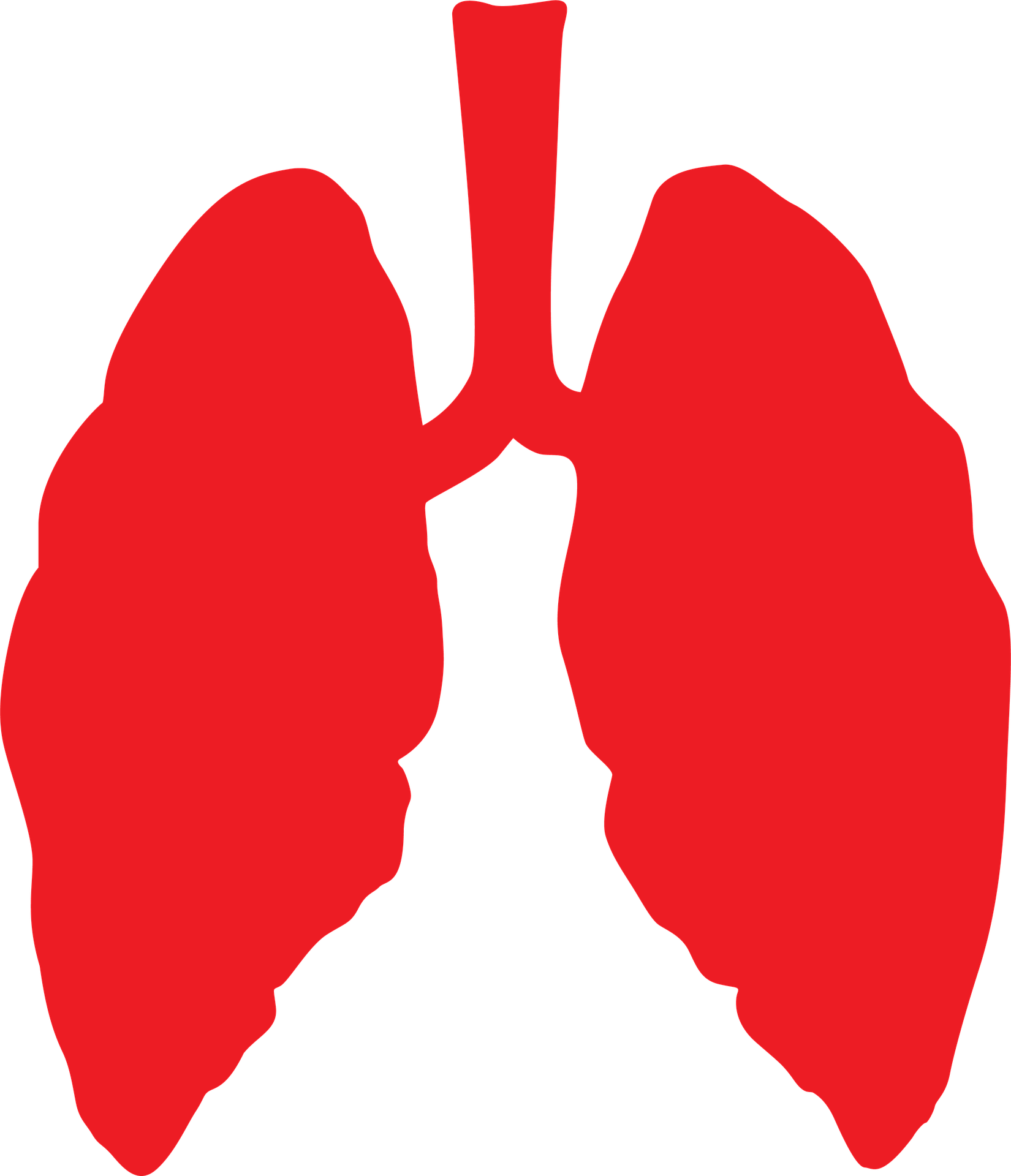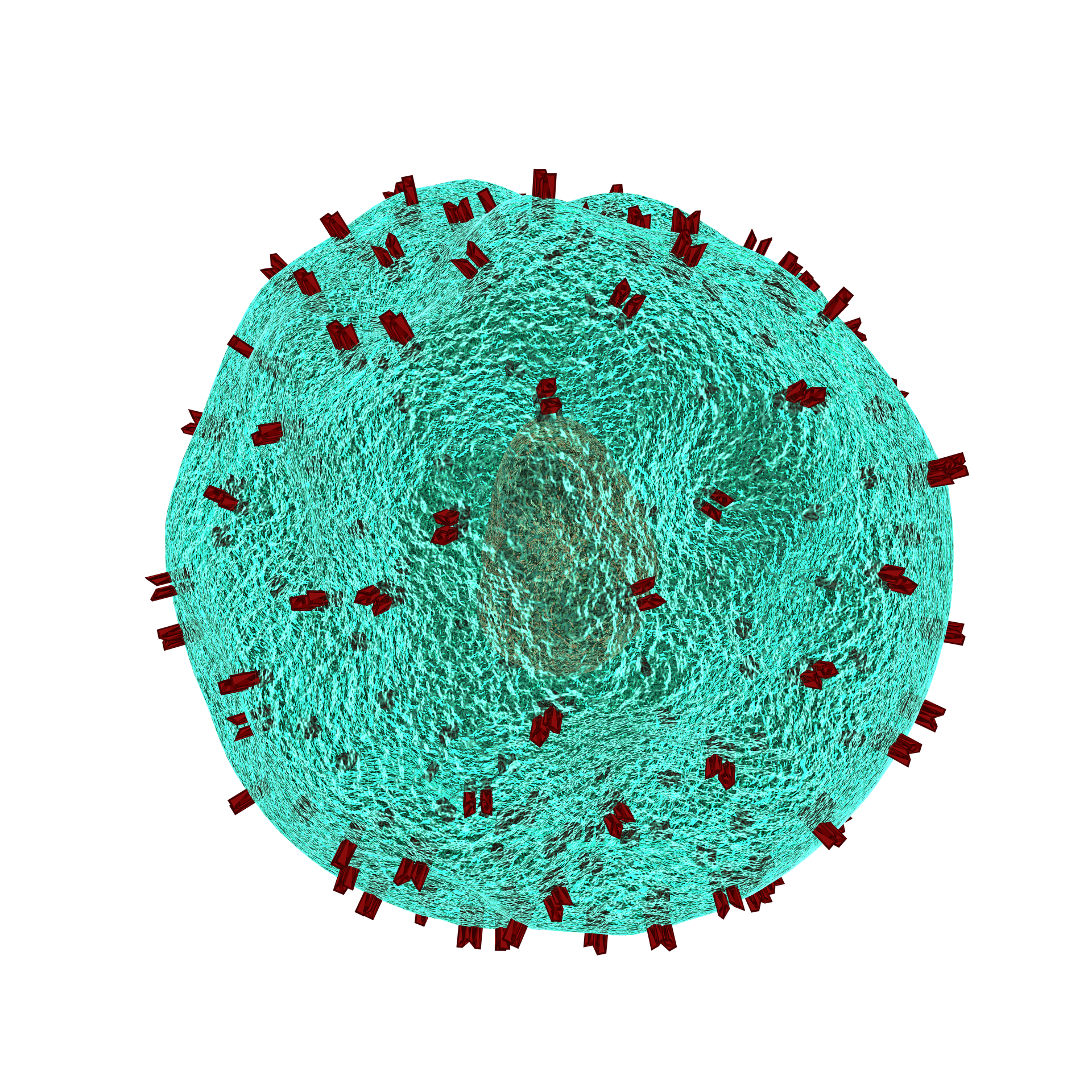One of the things that makes COPD so dangerous is the fact that it makes your body more vulnerable to disease. It not only makes you more likely to get sick, but it makes it harder to recover from illnesses, too.
For people with COPD, any sickness—even a common cold—can be serious or, in some cases, even life-threatening. Even worse are respiratory infections like pneumonia, which can cause permanent damage to lungs affected by COPD.
Because of this, it is imperative for every person with COPD to take good care of their immune system. Because your immune system is so closely linked with all of your body's other systems, that means making healthy choices when it comes to your diet, sleeping habits, personal hygiene, and even your mental health.
{{cta('fa8abc2a-1e88-4fa3-82fd-1cb5b9ed43b2','justifycenter')}}
In this guide, we're going to tell you everything you need to know about how to keep your immune system in the best shape possible while managing your COPD. Using the practical tips in this article, you can make sure you are giving your body everything it needs to protect itself from illnesses and infections.
Because you never know when sickness will strike, it's important to make your immune system's health a priority now, and not put it off for the future. By building healthy immune habits early and continuing to be diligent, you may be able to prevent a number of illnesses that could worsen your COPD.
In this Guide:
- What Works and What Doesn't
- How Your Immune System Works
- How COPD Affects Your Immune System
- Practical Tips You Can Use to Boost Your Immune System the Right Way
- Vitamins and Nutrients You Need for a Healthy Immune System
- The Anti-Inflammation Diet
- Things that Don't Help Your Immune System
What Works and What Doesn't
The world around us is full of products that make lofty claims about boosting your immune system and staving off disease. You've probably seen them advertised on TV, in magazines, health food stores, and even your local supermarket.
Unfortunately, these products are usually nothing more than glorified snacks that won't boost your immune system in any way. So far, scientists haven't been able to confirm that any health food or supplement on its own will reliably improve your resistance to illness.
However, researchers have identified a variety of healthy habits and nutrients that support your immune system and keep it running smoothly. On their own, they are unlikely to make much of a difference, but putting them all together will help you build a healthier lifestyle that boosts your body's ability to fight off infection and disease.
It's important to know that keeping your immune system healthy isn't about taking a certain supplement or miracle vitamin; it's about giving your immune system everything it needs to stay strong. It's also about avoiding activities and habits that weaken your immune system's ability to respond to threats.
{{cta('b59df0c1-c4de-47a8-8e1c-0d33d4b414aa','justifycenter')}}
In these next sections, we're going to tell you all about all the nutrients, healthy habits, and other treatments like vaccines that you need to keep your immune system primed and ready to fight disease. While none of these things are miracle cures, they are the most effective, proven ways to keep your immune system strong and working as effectively and efficiently as possible.
How Your Immune System Works

The immune system is a very complex system that protects your body in a variety of different ways. It not only fights off pathogens, like viruses and bacteria, that make you sick, but it also helps your body destroy harmful toxins and misbehaving cells like cancer cells.
Your immune system is made up of many different tissues, cells, and molecules that are spread all throughout your body. But in general, your immune system can be categorized into two main parts: the innate immune response and the adaptive immune response.
The Innate Immune Response

The first step of your body's immune response is often referred to as the “innate” immune response. This is a broad, generalized immune reaction that gets triggered whenever you are sick, injured, or your body detects pathogens or irritation.
The innate immune response is quick, and its goal is to destroy any bacteria, viruses, parasites, or other harmful pathogens that enter your body. It does so by mobilizing pathogen-destroying cells (called leukocytes) and triggering inflammation.
Inflammation causes changes in your body that allow your immune system to heal the injury more quickly. It also triggers reactions like fever, runny nose, coughing, and sneezing that help your body flush pathogens out of your body more quickly.
In some cases, your innate immune response can become over-sensitive and react to things that are not harmful, causing it to trigger the inflammatory response when it is not needed. This can lead to chronic inflammation, which is linked to a variety of chronic diseases, including heart disease and COPD.
One of the most important parts of the innate immune system is a category of cells called leukocytes, also known as white blood cells. Leukocytes are one of the most important parts of the immune system and they come in a variety of different types.

The primary responsibility of leukocytes is to track down and destroy all kinds of viruses, bacteria, and other pathogens, and each type of leukocyte has its own pathogen-hunting specialty. For example, phagocytes, which make up one category of leukocytes, kill pathogens by surrounding them and dissolving them with a cocktail of toxic chemicals.
Leukocytes lie in wait in many different places throughout your body, ready to spring into action as soon as they detect a pathogen to destroy. They can also travel around in your bloodstream, which allows them to quickly get to any place in the body where they are needed.
The Adaptive Immune Response

One of the most incredible talents of the immune system is its ability to learn and adapt to its environment. This is the job of the second main part of your immune system, the “adaptive” immune response.
Unlike the innate immune system, which fights pathogens in general, the adaptive immune system is responsible for tracking down and killing specific pathogens. It does this by creating antibodies whenever it encounters a new type of pathogen that it hasn't seen before.
Antibodies are molecules that can only stick to one specific type of pathogen, such as a specific type of virus or a particular bacteria species. When an antibody encounters the matching pathogen, it binds, or sticks, itself to the pathogen's surface.
This tag alerts leukocytes to the pathogen's presence and marks it for destruction. As a result, your immune system will recognize the pathogen much more quickly than it would if there were no antibodies around to help.
In this way, antibodies act as a sort of “memory” that allows your immune system to quickly identify viruses and bacteria that it has encountered before. This helps your immune system respond more rapidly and effectively to threats, reducing your chance of getting sick.
How COPD Affects Your Immune System
COPD has long been known to weaken the immune system and make patients more prone to disease. While researchers still do not fully understand why this happens, the link between COPD and poor immune system function is clear.
One reason for this is chronic inflammation, which afflicts the vast majority of patients with COPD. Studies show that chronic inflammation has a detrimental effect on the immune system, reducing its ability to fight disease.

Usually, inflammation triggers your immune system to act and neutralize whatever caused the inflammation. But in the case of chronic inflammation, your immune system overreacts when there is no real physical threat to neutralize.
As a result, the inflammation continues indefinitely and your immune system stays perpetually preoccupied with the imaginary threat. This unchecked inflammation puts a great deal of stress on your body (including your lungs) and makes your immune system less effective at countering real threats.
As the Cleveland Clinic puts it, “sustained, high levels of inflammation point to an overworked, over-tired immune system that can't properly protect you.” Unfortunately, chronic inflammation is a reality for the majority of people with COPD.
This has led some researchers to believe that COPD may be, at least in part, an autoimmune disease. An autoimmune disease is a disease that causes your body's immune system to mistakenly attack your body's own healthy cells.
The immune systems of people with COPD tend to overreact to minor irritants that you breathe in, causing inflammation in the lungs. Instead of attacking just the irritant, the immune system may end up attacking healthy lung tissue, resulting in permanent damage to the lungs that researchers believe may both cause and worsen COPD.
Chronic inflammation in the lungs can also make the lung tissue more susceptible to bacteria that cause respiratory illnesses and infections. Another problem is constant airway blockage from excess mucus and airway constriction, which makes it easier for infections to take hold in your lungs and airways.
It is also very common for COPD patients to suffer from anxiety, stress, and depression, which are known to weaken your immune system. COPD also impairs many patients ability to sleep, and lack of sleep is also linked to poor immune system function.
Other immune system problems faced by patients are indirectly caused by the symptoms of COPD itself. For instance, patients who get short of breath easily often struggle to keep up with healthy habits that are necessary for a healthy immune system, including exercising and eating a healthy diet.
{{cta('43b79c5e-6bd6-4f02-ac27-2d038d20c146','justifycenter')}}
However, probably the most important reason that COPD patients have to take extra good care of their immune systems is to avoid COPD exacerbations. Exacerbations can be triggered by even mild illnesses and infections, and a healthy immune system is your first line of defense against getting sick.
Exacerbations make your COPD symptoms much worse and they can last for weeks or longer, which makes it very difficult to stay active and live a healthy lifestyle. Serious exacerbations can be even more devastating, causing permanent lung damage, sending you to the hospital, or even leading to respiratory failure and death.
Practical Tips You Can Use to Boost Your Immune System the Right Way

Because the immune system is so complex and varied, there is no one, definitive way to “boost” it. However, that doesn't mean that that your lifestyle and behaviors don't affect how your immune system works.
Lots of factors, including your nutrition, exercise habits, mental health, and more can have a significant effect on how efficiently your immune system functions. Luckily, that means that there are many things you can do in your daily life to keep your immune system healthy.
Stop Smoking

Smoking tobacco is bad for your immune system and makes your more prone to getting sick. Because most people who have COPD are smokers or former smokers, this is a common problem among COPD patients.
Smoking negatively affects the leukocytes in your body and suppresses your immune response. It also causes inflammation in your lungs that can make your COPD symptoms much worse.
Smoking also causes damage to other cells all throughout your body, which triggers a chronic state of inflammation. This inflammation increases your risk for infections, heart disease, and other serious health conditions.
However, if you quit smoking, your immune system can and will recover. If you have COPD and you still smoke, then it is absolutely imperative that you quit.
Quitting smoking is one of the best things you can do to improve your health and your overall quality of life with COPD. If you need help, visit the CDC's website to learn about a variety of quit smoking resources that can help you succeed.
It's never too late to stop smoking. Doing so will not only help your immune system, but it can also improve your COPD symptoms and prevent other serious diseases.
Don't Drink Too Much

While there's nothing wrong with a drink now and then, too much alcohol can hurt your immune system. It does this by suppressing the activity of leukocytes and reducing your immune system's ability to recognize and respond to threats.
Any kind of excessive drinking, including binge drinking and chronic alcohol use, can weaken your immune system. In fact, studies show that alcohol effects your immune system within twenty minutes of taking a drink, and that just one instance of binge drinking can significantly increase your risk for infection for days after you've sobered up.
This leaves your body more vulnerable to illnesses, infection, and other diseases like cancer. In combination with the already present immune-suppressing effects of COPD, excessive drinking can be particularly dangerous for COPD patients.
That's why, if you have COPD, you should be especially careful to avoid alcohol or at least drink in moderation. US guidelines for alcohol use recommend that you drink no more than seven standard drinks per week.
If you struggle with alcohol abuse or need help quitting or reducing your drinking, visit the Alcohol Rehab Guide to learn about a variety of resources that can help.
Stay Active

If you have COPD, then you know that staying active is important for keeping your heart and lungs healthy. However, physical activity is just as important for your immune system, as well.
Researchers aren't sure exactly why, but getting regular exercise improves your immune system's ability to fight off disease. One study showed that just twenty minutes of physical activity every day can reduce inflammation and help your immune system function more effectively.
Even though COPD can make exercise difficult, it's important to find some physical activities that you find engaging and fun. Even if you have to start small, you can improve your physical strength and endurance with time.
If you need help working out a feasible exercise plan, don't be afraid to ask your doctor for advice. If your COPD symptoms are preventing you from exercising, your doctor may be able to recommend another treatment, like pulmonary rehabilitation or supplemental oxygen, that can help you stay active.
Getting regular exercise can be as simple taking daily walks, bicycling, or doing aerobic exercises at home. For more tips on how to stay active with COPD, visit our guide to exercising at home with COPD here.
Vaccination
Vaccination is the only targeted treatment scientists have found that can reliably and significantly boost the immune system on its own. That's why doctors often urge COPD patients to get vaccinated as a first line of defense against illnesses like the flu and pneumonia.
Vaccines work by exposing your body to a tiny amount of a disease-causing pathogen that has been weakened or killed. The vaccine doesn't contain enough of the pathogen to get you sick, but it contains just enough for your immune system to recognize it and respond.
Your immune system reacts to the vaccine by making specific antibodies that target the pathogen in the vaccine. Then, if you are ever exposed to the pathogen in the future, your immune system will be primed and ready to destroy it before it has a chance to get you sick.
Here are the vaccines typically recommended for people with COPD:
- The Influenza Vaccine: Get vaccinated every year to protect yourself before flu season.
- Td Vaccine: Get vaccinated once every ten years to protect yourself from tetanus.
- Pneumococcal Vaccine: Get vaccinated once before the age of 65, and then twice again after the age of 65 to protect yourself from bacterial pneumonia
If you are not sure if you are up to date on these or any other vaccines, talk to your doctor. He can review your records and tell you what vaccines could be beneficial for you.
Reduce Stress

Chronic stress and other mental disorders like depression are well-known triggers for inflammation and immune system distress. Because of this, keeping stress at a minimum and treating anxiety and depression are important for keeping your immune system in good shape.
For instance, a variety of studies have found that people who experience chronic stress are more likely to contract a common cold. Chronic stress can also reduce your body's ability to heal itself, fight cancer, and gain immunity from vaccines.
Depression has also been linked to chronic inflammation and reduced immune system function. While researchers are still trying to understand exactly why this happens, they do have some idea of how it works.
Stress increases the amount of a “stress chemical” known as cortisol, which triggers inflammation. It also reduces the number of leukocytes in your body, making it harder for your immune system to fight off disease.
Unfortunately, chronic stress, anxiety, and depression are very common among people with COPD. Fortunately, there are many different things you can do to reduce your stress, treat depression, and improve your mental and emotional health.
Check out these guides for managing stress, anxiety, and depression:
- How to Treat Depression When You Have COPD
- How to Treat Anxiety and Panic Attacks When You Have COPD
Get Good Sleep

Sleep is an incredibly undervalued activity in the modern world. Despite the fact that it's necessary for survival, many people don't sleep enough and don't understand the importance of high quality sleep.
Many studies have shown that you are more likely to get sick when you don't get proper sleep. Being sleep deprived can also hamper your ability to recover from illnesses and infections, causing you to stay sick for longer.
Poor sleep has particularly serious consequences for people with COPD and can significantly increase their chances of experiencing a COPD exacerbation. Some studies have also found that sleep deprivation significantly impairs COPD patients' ability to breathe.
That's why it's so important to make sleep an important priority in your life. Most adults need at least 7-8 hours every single night, and any less can significantly affect your quality of life.
Unfortunately, COPD patients in particular often struggle to sleep because of their disease. This is partially because many COPD symptoms, including breathlessness, airway blockage, and chest discomfort, get worse for many patients in bed at night.
Fortunately, there are many things you can do to improve your sleep quality and your ability to fall sleep at night. It's all about establishing a consistent, relaxing nighttime routine and making sure you have a comfortable sleeping environment.
Here are some tips for improving your sleep when you have COPD:

